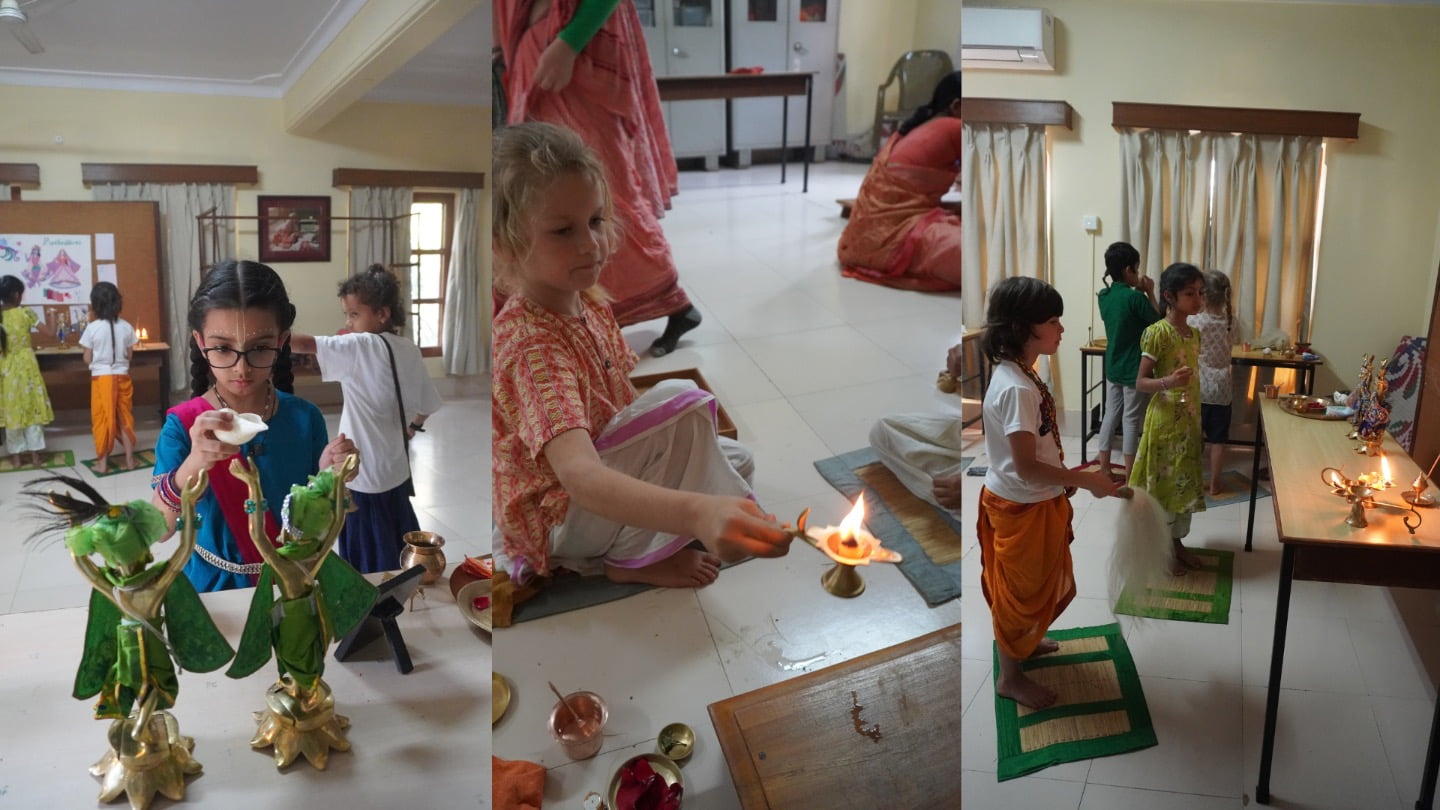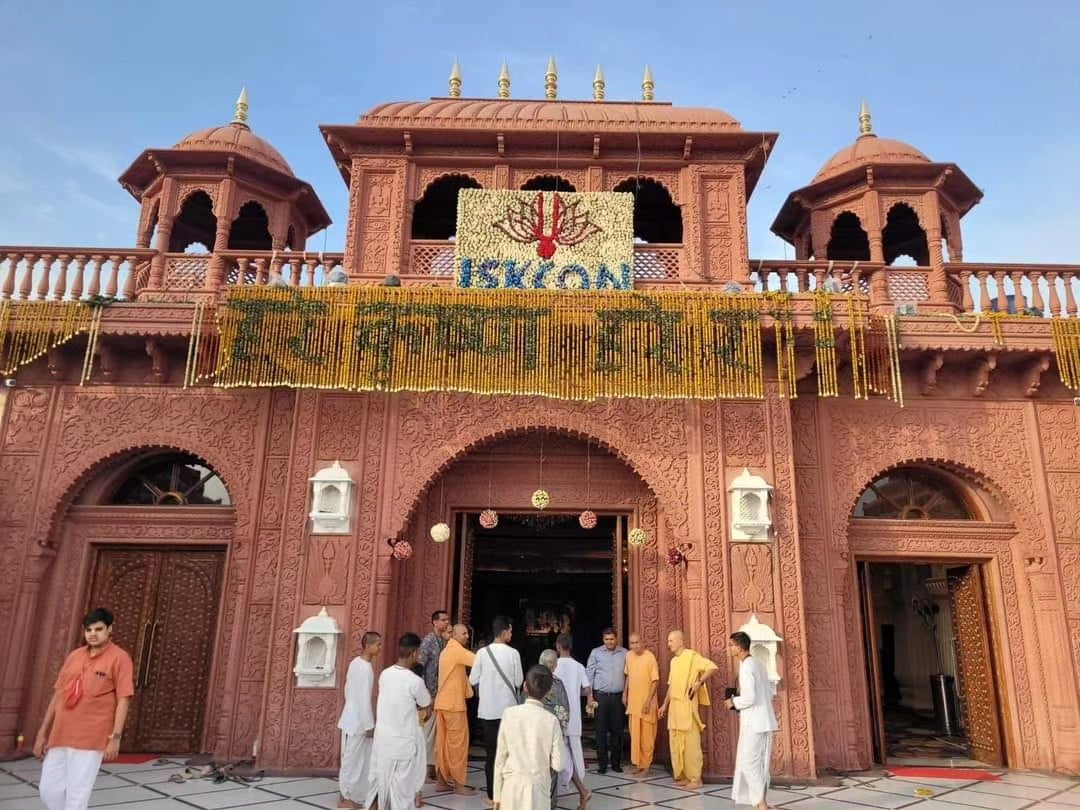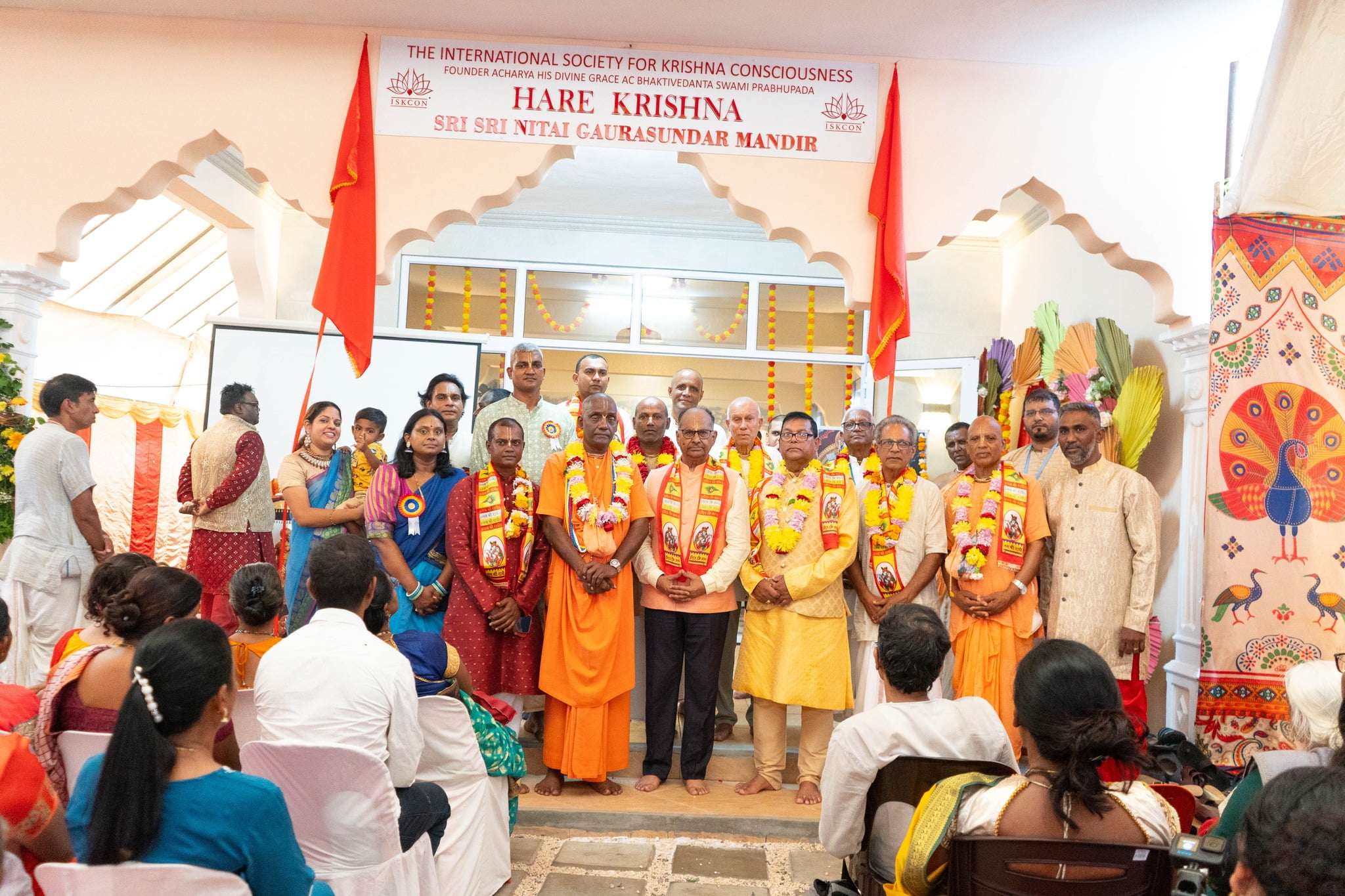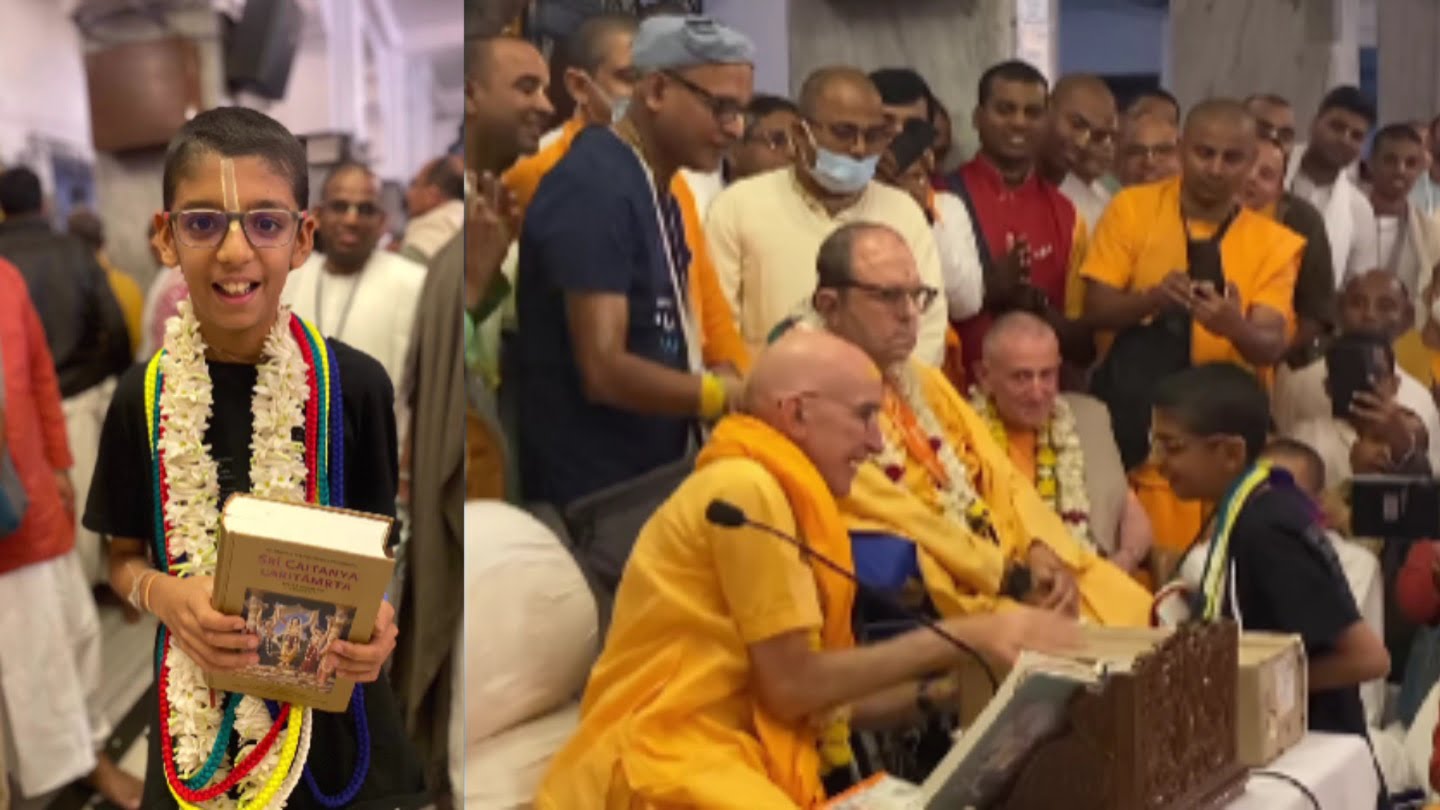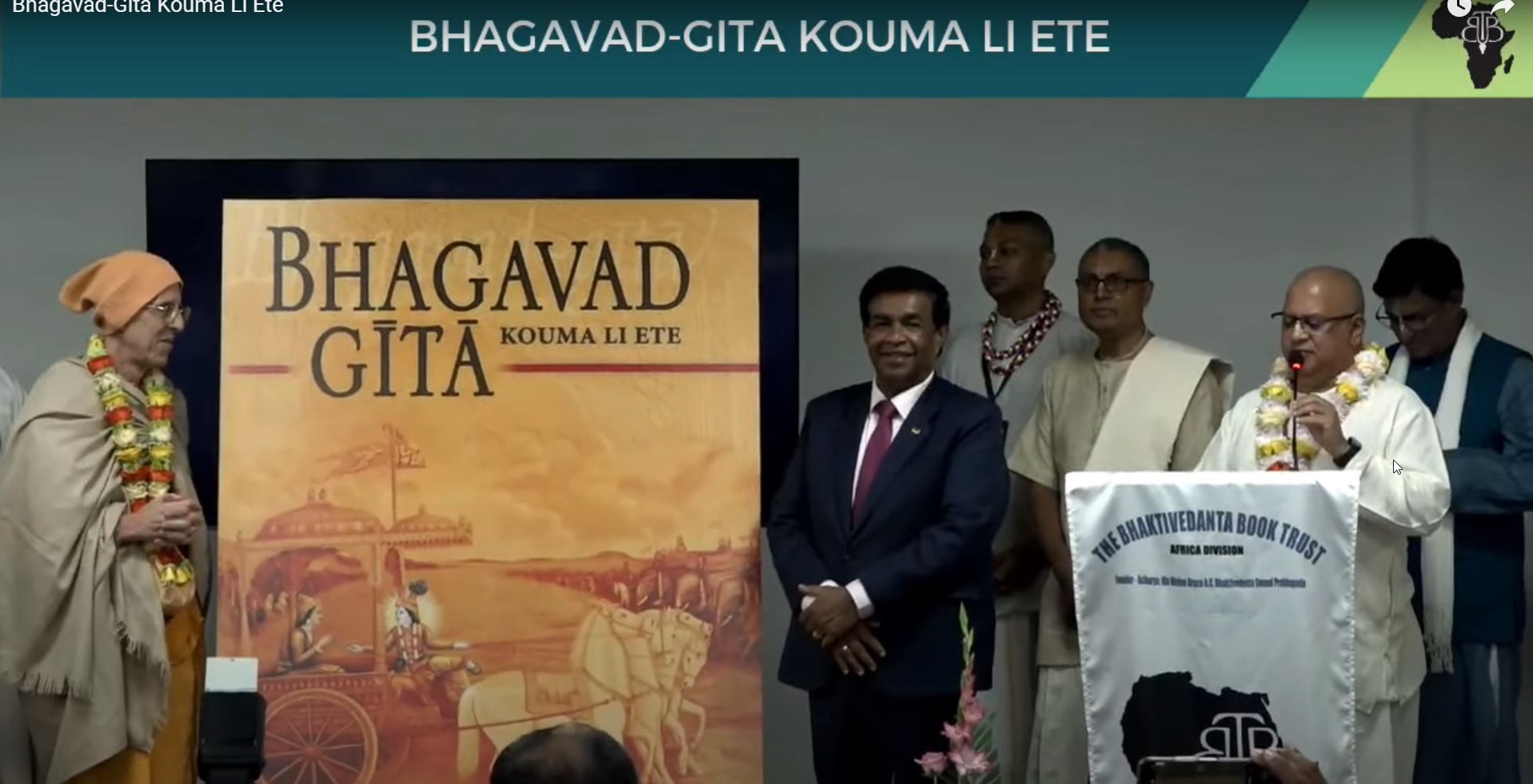Kenyan Book Distribution Reaches All-Time High
By Madhava Smullen | May 09, 2014
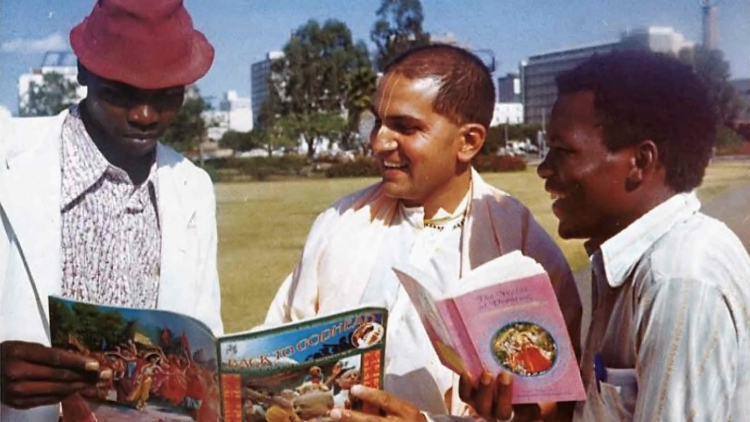
Distribution of Srila Prabhupada’s books in the East African country of Kenya has reached an all-time high, with 54,399 books distributed during the December marathon of 2013 by just three small temples: Nairobi, Kisumu and Mombasa.
The score catapulted Kenya to the number seven country in the world during the marathon, according to the World Sankirtana Newsletter.
Meanwhile with eighty devotees and congregation members distributing in seven different groups – including one comprising of youth aged 13 to 23 — Nairobi reached the top four small temples in the world, and became the number one temple in Africa.
What’s more, most of the books distributed were not to the Indian population but to local Africans.
“It was a big shock for all the devotees here,” says book distributor Dvaraka Vasini Dasi. “We couldn’t believe we did over 50,000 in one month!”
While it may be on a smaller scale, what happens during the other months of the year is just as inspiring, however.
Although book distribution in Kenya has long been a December-marathon-only activity, Dvaraka Vasini was inspired to begin daily book distribution in May 2010, after an encouraging visit by ISKCON guru and BBT editor Jayadvaita Swami.
Today, she is the only full-time distributor in Kenya along with her niece Amrita, a college student.
With a permit, they distribute books one-to-one on Kimathi Street in the center of Nairobi from Monday to Friday.

Happy to receive the Bhagavad-gita
They have also received permission to install book stands in fifteen Nakumatt supermarkets throughout the city, which sell books automatically. Each stand contains 200 small books by Srila Prabhupada, and people who are interested take a book and leave a donation.
Along with stands in five stores in Mombasa, and three in Kisumu, these sell about 1,000 books every month.
Meanwhile in 2012, Dvaraka Vasini travelled across Kenya placing a total of 4,184 books by Srila Prabhupada in 104 public, university, and prison libraries.
Most of the books she distributes are in English, which Kenyans often read in, while some are in Kiswahili, the national language.
“We call them ‘spiritual books,’ and avoid talking about religion,” she says, discussing the specificities of outreach to Africans. “We tell them that we are all spirit souls, and that the body – whether you’re African, Indian or European — doesn’t matter. It’s like a vehicle. And they relate to that.”
Popular books include The Laws of Nature and Coming Back, while the Bhagavad-gita – which Africans often avoid, because they see it as the holy book of the Hindus – is often thrown in as a reference book with other titles.
Of course, some customers have no preconceived notions. Recently, when school had just come back in after the holidays, Dvaraka was selling small books when a seven-year-old boy approached with a twenty-shilling coin, and picked out the book “Civilization and Transcendence” with Krishna on the cover.

Kamiti maximum prison library. Handing over the books to the librarian.
“It’s rare for Africans to pick a book with a picture of Krishna on the cover, as they say ‘It’s your God,’ ‘It’s the Hindu God,” things like that,” says Dvaraka. “But this small child, in his innocence, picked the book with Krishna, and I saw him showing it to his mother, pointing at the picture, like, ‘I like this.’ He could see how Krishna is so attractive. You just have to have a simple heart to know that.”
Of course, not all days on book distribution are easy. When asked what has kept her going for four years, Dvaraka Vasini tells a story about one of her toughest days.
“I was on the street alone, and the books were just not going out,” she recalls. “After some time I began to pace up and down on the pavement, thinking to myself, ‘What am I doing? These people are not even bothered, they’re not looking at the books. Why am I here?’”
“Just then, there was a tap on my shoulder, and a voice said, ‘You’re doing a very good service. Don’t give up!’ Because I was in my own thoughts, I didn’t really realize who it was. When I turned back there was no one there. But I still remember that incident. And it keeps me going.”
There are many lessons to be taken from book distribution. Once, a Muslim beggar in a wheelchair passed Dvaraka Vasini on his way to get free food at the local Mosque. When she smiled at him, he approached her, and picked a book out. Since he seemed to want to pay for it, she took his donation, but giave him an extra book for free.
When the beggar had gone, another man approached and asked for two books, saying, “I wasn’t really interested in your books; but after seeing how you treated the man in the wheelchair I want to buy some from you.”
“We should always be careful of how we conduct ourselves on the street,” Dvaraka comments. “Because we’re representing the whole Hare Krishna Movement.”
In the near future, Dvaraka hopes to involve more devotees in book distribution throughout the year, with plans to help form a small book distribution committee at the ISKCON Nairobi temple.
“We’ll have six or seven committee members, and each member will take the responsibility to do something new for a month or two, trying different ideas,” she says.
One of these ideas is to hold Harinama outside of residential communities. As crime problems abound in Nairobi, neighborhoods are often gated with a watchman, making it impossible to distribute books door to door. So Dvaraka hopes to draw residents out of their homes with music, and talk to them about Srila Prabhupada’s books while they’re watching the Harinama.
Another idea is to put up posters next to the book stands in Nakumatt supermarkets, inviting people to come to a discourse on the books at the Nairobi temple, and taking automatic distribution to a new level.
Finally, Dvaraka Vasini has been brainstorming about how to distribute books in small towns, where people are staunch in their Christian and Muslim beliefs, and can be less receptive. To assist in this, she’s working on Kiswahili translations of Perfect Questions, Perfect Answers, Laws of Nature, and Coming Back for villagers who can’t speak English.
“The books have to go out to everyone, not just people in the cities!” she says.



